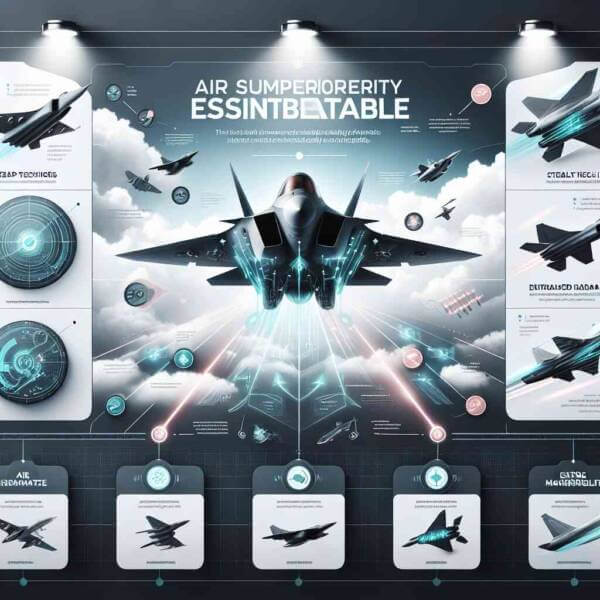
The use of aircraft in military operations transforms battlefield tactics.
Nations invest heavily in military aviation to maintain superiority.
History of Military Aviation
As technology advanced, airplanes were adapted for air-to-air battles, altering battlefield dynamics.
Important events in the evolution of military aviation:
- Development of air combat tactics
- Massive growth in air power
- Rapid development of jet technology
- Rise of unmanned aerial vehicles (UAVs)
Each era brought more powerful aircraft that pushed the limits.
Different Roles of Military Planes
Military aviation includes a variety of aircraft, each designed for unique purposes.
Types of planes used in military aviation:
- Fighter jets
- Planes that deliver heavy payloads
- Planes used to move troops and equipment
- Reconnaissance and surveillance drones
Each type plays a key part in military operations, from striking enemy targets.
Importance of Air Superiority
Air superiority is vital for achieving military success.
Strategic advantages of air dominance:
- Providing close air support
- Disrupting enemy supply lines
- Early warning and real-time data
- Boosting morale
Nations with strong military aviation capabilities can defend their interests more effectively.
Advancements Shaping the Future
Military aviation is at the forefront of scientific progress.
Future technologies in military aviation:
- Aircraft designed to evade radar detection
- Ultra-fast strike capabilities
- Autonomous drones
- New forms of aerial weaponry
These advancements increase survivability for air forces worldwide.
Obstacles Facing the Industry
Despite technological superiority, military aviation faces numerous challenges.
Key challenges visit include:
- Rising development and maintenance costs
- Need for constant upgrades
- Securing digital communications and data
- Ethical concerns with autonomous weapons
Addressing these challenges is crucial to staying ahead.
What Lies Ahead
The future of military aviation promises faster, smarter, and more autonomous systems.
Likely developments:
- Greater integration of artificial intelligence
- Military satellites and space-based weapons
- Reducing environmental impacts of defense operations
- Collaborations across allied air forces
The next era of military aviation will redefine defense.
Final Thoughts on Military Aviation
Military aviation remains a powerful force in global defense.
As technology continues to evolve, the skies will remain a critical arena where military aviation protects nations.
The future of military aviation is limitless — and it’s only just beginning.